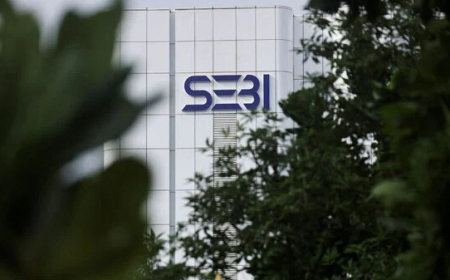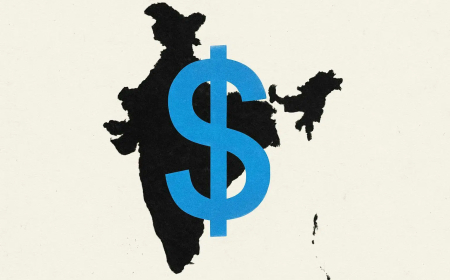India’s PSU Banks Outshine Private Peers in Arresting Bad Loans
Public sector banks in India have reported lower bad loans than private banks in FY25, marking a significant shift in asset quality performance. Read the full analysis and investor outlook.

Public Sector Banks Deliver Stronger Asset Quality Performance Amid Tight Oversight
In a surprising twist to India's evolving banking landscape, public sector banks (PSBs) have outperformed their private sector counterparts in managing and reducing bad loans for the financial year 2024-25. This development marks a significant shift from the traditional narrative that often places private lenders ahead in operational efficiency and risk management.
According to data from the Reserve Bank of India (RBI) and financial disclosures from key lenders, PSBs collectively reported a sharp decline in gross non-performing assets (GNPA) to 3.7% in FY25, down from 5.5% in FY24. Meanwhile, many private sector banks saw a marginal improvement or even stagnation in their asset quality, with average GNPAs hovering around 4.1%, slightly higher than their public peers.
Key Drivers of PSU Banks’ Improved Performance
The turnaround for PSBs is rooted in a combination of factors—regulatory vigilance, improved credit appraisal processes, and targeted recovery efforts.
"After years of being at the receiving end of criticism for bad loan pile-ups, PSBs have fundamentally reworked their approach," said Rajat Mehra, Banking Analyst at Axis Securities. "From using analytics-based early warning systems to tying incentives with recovery rates, public banks are now more aligned with risk containment strategies."
The government-backed EASE (Enhanced Access and Service Excellence) reforms, launched in 2018, have gained traction. These reforms emphasize data-driven monitoring, branch-level accountability, and digitization of loan disbursement and recovery mechanisms.
In FY25, banks like State Bank of India (SBI) and Bank of Baroda reported record low slippages and significantly higher recovery from written-off accounts.
Private Banks Lag Amid Aggressive Lending
In contrast, some private banks that expanded aggressively in the unsecured retail and SME segments have seen a rise in stress formation, especially in the post-COVID era.
For instance, IndusInd Bank and Kotak Mahindra Bank reported higher slippages in their personal loan and microfinance portfolios. While their overall GNPA ratios remain under control, the pace of improvement has slowed.
"A few private banks chased growth in high-yield segments where credit risk is naturally higher. This has started to reflect in their NPA metrics, albeit not at alarming levels," said Kavita Rao, Senior Economist at CARE Ratings.
Market Reaction and Stock Performance
The financial markets have taken note. Public sector bank stocks have rallied strongly over the past year. The Nifty PSU Bank index surged nearly 58% in FY25, outperforming the Nifty Private Bank index, which rose around 19% during the same period.
SBI shares hit an all-time high, while Union Bank of India and Bank of Maharashtra delivered multibagger returns, driven by improved asset quality, higher margins, and enhanced investor confidence.
On the flip side, private lenders are being watched closely for their exposure to high-risk retail loans, even as they remain fundamentally strong and better capitalized.
Investor Outlook: Is the PSU Rally Sustainable?
The resurgence of PSBs has led to a broader discussion on their long-term sustainability. While their balance sheets have strengthened, some analysts caution against extrapolating short-term gains.
“Public banks have made meaningful strides, but their performance is still tethered to regulatory handholding and macroeconomic cycles,” noted Abhishek Anand, Head of Research at JM Financial. “However, the valuation gap between public and private banks is narrowing and could offer tactical opportunities for investors.”
Mutual funds and foreign institutional investors (FIIs) have also increased their exposure to PSBs. As of Q1 FY26, SBI, Canara Bank, and Bank of India reported higher institutional holdings, underscoring renewed confidence in their turnaround story.
Challenges Ahead
Despite the positives, PSU banks still face legacy issues like operational inefficiencies, slower tech adoption, and HR-related bottlenecks. Moreover, as interest rates stabilize, margin compression could offset gains from improved asset quality.
Meanwhile, private banks are focusing on de-risking and recalibrating their retail portfolios. HDFC Bank, ICICI Bank, and Axis Bank continue to lead in innovation, digital banking, and wealth management services, maintaining their long-term investment appeal.
Conclusion
The narrative in India’s banking sector is evolving. With PSBs leading in curbing bad loans and private banks focusing on recalibration, the competition is no longer one-sided. For investors, this divergence offers diversified opportunities across the financial spectrum.
Whether this marks a structural shift or a cyclical catch-up remains to be seen. However, one thing is clear: India’s public banks are no longer the underdogs in asset quality management.
What's Your Reaction?
 Like
0
Like
0
 Dislike
0
Dislike
0
 Love
0
Love
0
 Funny
0
Funny
0
 Angry
0
Angry
0
 Sad
0
Sad
0
 Wow
0
Wow
0












































































